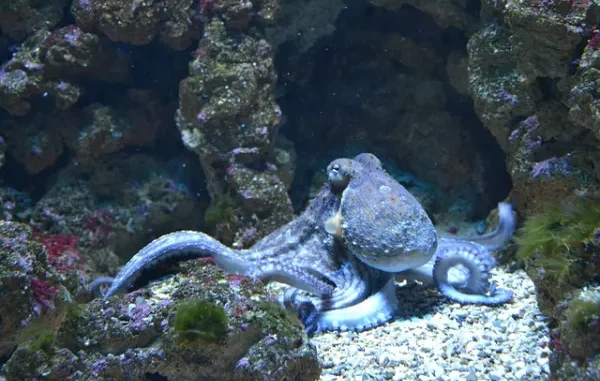
Those Aren’t Tentacles, They’re Fancy Arms: Octopus Facts
The ocean. Vaster than your ex’s dating history, saltier than your landlord’s surprise rent hike, and home to some truly bizarre creatures. We’re talking anglerfish with glowing lures, jellyfish that sting like a bad breakup, and, of course, the stars of this particular show: octopuses.
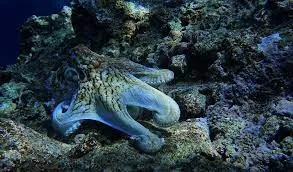
These eight-armed cephalopods are the undisputed champions of the weird, the wonderful, and the downright baffling. So, grab your metaphorical scuba gear (or, you know, a comfy chair) because we’re about to dive deep into the fascinating, and sometimes disturbing, world of octopus facts. Here are some interesting facts about octopus:
Fact #1: Octopus Have Eight Arms, Not Tentacles (Get it Right, People)
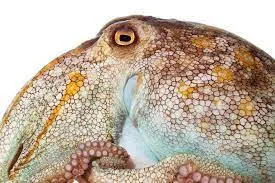
First things first, let’s clear up a common misconception. Those wiggly appendages attached to an octopus aren’t tentacles – they’re arms. Yes, arms. Think about it – they can grip, they can feel, they even have little suckers on them for ultimate grabbing power.
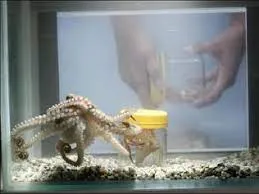
Tentacles, on the other hand, are generally longer, more whip-like appendages used for things like grabbing food or stinging enemies (looking at you, jellyfish). So, the next time you see a picture of an octopus, resist the urge to call its arms tentacles. It’s like calling your fingers sausages – technically they’re both appendages, but trust me, your fingers wouldn’t appreciate the comparison.
Fact #2: They’re Escape Artists Extraordinaire (Because Apparently, Aquariums Are Boring)
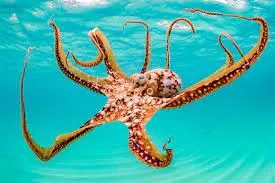
Octopuses are the Houdinis of the invertebrate world. These brainy cephalopods are masters of escape, contorting their soft bodies to squeeze through impossibly small openings. Ever seen a jar lid that seems escape-proof? An octopus could probably figure it out.
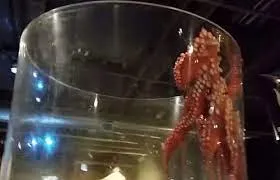
This escape artistry is a real headache for aquarium keepers, who constantly have to be on the lookout for octopuses plotting their grand escape (spoiler alert: they’re usually successful). So, the next time you visit an aquarium and see an empty octopus tank, don’t blame the staff – blame the octopus’s insatiable wanderlust (or maybe they just hated the decor).
Fact #3: They Have Three Hearts (Because Two Just Wasn’t Enough Drama)
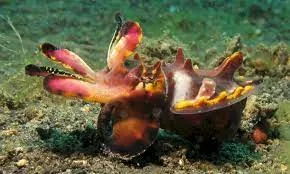
Apparently, two hearts just aren’t enough for an octopus. These multi-tasking mollusks boast a trifecta of tickers: one main heart to pump blood throughout their body and two smaller hearts to circulate blood through their gills. Why three? Honestly, who knows? Maybe they need a backup in case one heart gets tired (octopushing all that water through your gills must be exhausting).
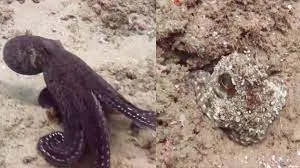
Maybe they just like the drama of having three hearts beating away in their chest cavity (dramatic octopus opera, anyone?). Whatever the reason, three hearts it is. Just another example of how octopuses defy all logic and embrace the weird.
Fact #4: They Can Camouflage Themselves Like Chameleons on Steroids (Because Nature is a Show-Off)
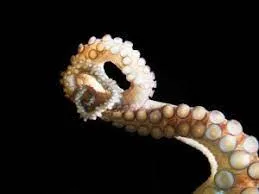
Chameleons get all the glory for their color-changing abilities, but octopuses take camouflage to a whole new level. These masters of disguise can not only change color to blend in with their surroundings, but they can also alter their skin texture to mimic rocks, coral, or even seaweed.
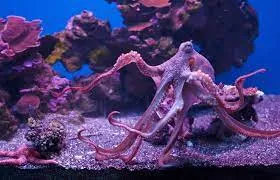
They do this with tiny pigment sacs in their skin called chromatophores, which expand and contract to create a mind-blowing array of colors and patterns. It’s basically like having a built-in invisibility cloak, perfect for sneaking up on unsuspecting prey (or, you know, avoiding becoming someone else’s lunch).
Fact #5: They’re Smarter Than Your Average Invertebrate (Because Apparently, Some Invertebrates Need to Work on Their IQ)
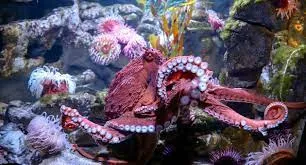
Octopuses are undeniably intelligent animals. They have complex nervous systems, can solve puzzles, and even exhibit short-term memory. Studies have shown octopuses opening jars, navigating mazes, and even recognizing individual humans (although, let’s be honest, who wouldn’t recognize the person who keeps feeding them delicious shrimp?).
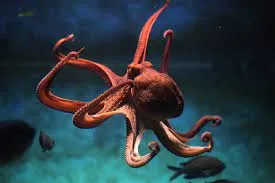
This intelligence is evident in their hunting techniques, their ability to use tools, and their overall problem-solving skills. So, the next time you see an octopus, don’t underestimate its brainpower. They might be plotting your demise (probably not, but hey, it’s good to be cautious around such clever animals).
Leave a Reply